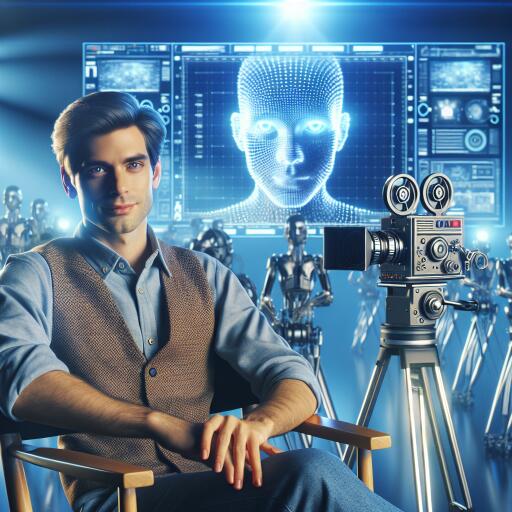David Fincher’s Intriguing Take on AI: An Insightful Perspective
David Fincher, the celebrated filmmaker behind gripping narratives like “The Curious Case of Benjamin Button,” “The Social Network,” and groundbreaking series such as “House of Cards” and “Mindhunter,” has always had a keen eye for the darker corners of the human psyche. His storytelling is not without a sense of morbid fascination, an almost dark amusement, at the depths to which humanity can sink when stripped of virtues like compassion and ethics. Despite this, Fincher embeds these stories with a thoughtfulness and craftsmanship that demand attention.
His body of work largely scrutinizes the darker facets of human nature, uncovering the lengths individuals will go to when unencumbered by moral restraints. Yet, it’s not just the thematic elements of his films that have captivated audiences worldwide; his mastery over the technical aspects of filmmaking has equally contributed to his distinguished career. Remarkably, amidst the rapid technological advancements of our time, Fincher has turned his analytical gaze towards an emerging frontier: artificial intelligence (AI).
In a realm where AI’s creative potential is both fascinating and terrifying, there’s a notable discourse on the implications of machines that can create, think, and perhaps, one day, feel. Fincher’s exploration into the grim facets of technology and its impact on society, evidenced through works like “Zodiac” and “The Social Network,” positions him as a fitting auteur to probe into the ethical and artistic complexities of AI.
The prospect of AI not merely as a tool but as a creator itself, generating content that lacks the human touch or authenticity, undeniably presents a cautionary tale. The internet has already seen its fair share of AI-generated content, from eerily coherent text to disconcertingly abstract art, showcasing the heights and depths of machine-led creativity. This burgeoning domain raises questions about originality, creativity, and the essence of human artistry, topics that filmmakers like Stanley Kubrick, if he were alive today, would likely have delved into with much enthusiasm. Considering Fincher’s track record and keen interest in the intersection of technology and human behavior, his insights into the AI dilemma are notably anticipated.
In a revealing 2023 interview with GQ, Fincher shared his observations on the advent of AI, demonstrating his characteristic depth of thought and attention to detail. Although he admits to still forming a fully fleshed-out stance on AI, it’s clear that he’s neither dismissing its potential nor is he naively endorsing its unchecked development. His contemplation on the subject reflects a broader ambiguity and concern that many share about the future of AI—its ability to enhance human creativity on the one hand and its potential to diminish artistic integrity on the other.
Fincher’s perspective on AI could bring a nuanced understanding to the ongoing debate on the role of artificial intelligence in creative industries. His detailed approach to filmmaking, combined with a discerning eye for technological innovation, makes him an influential figure in navigating the evolving landscape of digital creativity.
As AI continues to advance, the implications for the world of filmmaking and beyond remain largely uncertain. Yet, with astute observers and contributors like David Fincher engaging with these developments, the conversation around AI and creativity promises to be as dynamic and complex as the technology itself. His cautious yet open-minded stance on AI signifies a broader consensus among thoughtful creators: a recognition of AI’s profound capabilities coupled with a measured apprehension about its unchecked growth.
David Fincher’s journey into the realm of AI, whether as a skeptic or an advocate, is a developing story in itself. As technology races ahead, the perspectives of seasoned filmmakers on its impact on the creative process and societal values will be invaluable. Their insights could guide not just the future of storytelling but also how we navigate the intricate relationship between humanity and the machines we create.










